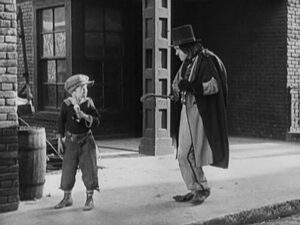Tomorrow as I post this (April 10, 2024) at 8 PM Eastern Time I’ll accompany Fritz Lang’s 1927 silent film, Metropolis, on Twitch. It’s one of my favorites, with a futuristic city, an evil robot, and probably the first full-blown mad scientist’s lab in a movie. Twitch left my last two shows up for on-demand playing for about a week, and I assume they’ll do the same with this one, so you can catch it even if the show time is inconvenient. This is the restored 2 ½ hour version, and there will be a 10-minute intermission to give my arms a rest.
If you’re near Plaistow, NH, you can catch me accompanying it in person at the Plaistow Library at 1 PM on Friday, April 12.
A preview scene with my accompaniment is up on YouTube.
